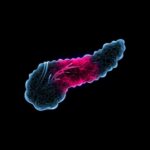The results published in Nature Medicine show that Axial’s pipeline lead candidate AB-2004, significantly improved symptoms associated with autism spectrum disorder (ASD) such as irritability and anxiety. The open-label study showed that the first-in-class compound was safe and well-tolerated in 30 male adolescents aged 12 to 17 with ASD and GI symptoms. The study also evaluated several others efficacy endpoints aimed at guiding future clinical development. The full results are presented in the article, entitled “Safety and target-engagement of an oral small molecule sequestrant in adolescents with Autism Spectrum Disorder: an open-label phase 1b/2a trial”, available online at https://www.nature.com/articles/s41591-022-01683-9.
About Autism Spectrum Disorder (ASD)
Approximately 1 in 160 children worldwide have been identified with ASD according to the World Health Organization (WHO). Typical traits of autism include altered social interaction, communication and the presence of stereotyped repetitive behavior. Co-occurring conditions such irritability and anxiety are considered to impact a majority of the autistic pediatric population profoundly affecting the quality of life of ASD patients and their relatives.
The connection between ASD and the gut
Studies have revealed significant changes between the gut microbiome composition of children with ASD and those of typically developing children. These differences are thought to result in altered concentration profiles of certain bacteria-derived metabolites, including levels of neuroactive microbial metabolites (NMMs) that are produced in the gut but can reach the brain through the bloodstream, affecting neuronal networks, oligodendrocyte maturation and myelination in certain regions of the brain contributing to ASD.
A new potential therapeutic approach: AB-2004
The compound AB-2004 designed by Axial effectively targeted NMMs associated with ASD-associated behaviors directly in the gut limiting their impact on the brain, with high affinity and selectivity.
With >90% adherence to the dosing regimen the phase 1b/2a clinical trial AB-2004 demonstrated:
- significant reduced levels of key NMMs, including 4-ethylphenylsulfate (4-EPS), p-cresol sulfate (p-CS), and indoxyl sulfate (IS) in plasma and urine.
- subjects with high irritability and high anxiety displayed a greater than 9-point decrease in the scores on the Aberrant Behavior Checklist – Irritability domain (ABC-I) and the Pediatric Anxiety Rating Scale (PARS) over 8 weeks.
- a favorable safety profile with no drug-related adverse events.
These results support the potential of a safe and novel therapeutic approach for treating ASD symptoms such irritability and anxiety. With minimal side effects in part due to a lack of systemic exposure to the drug, AB-2004 is representing an effective treatment option for co-occurring conditions associated with ASD. “The data highlighted in Nature Medicine further support our novel therapeutic strategy focused on specific targets in the gut microbiome. We strongly believe that AB-2004 can improve the quality of life of many children with autism.” Dr. Stewart Campbell, Ph.D., Chief Executive Officer at Axial Therapeutics, said.
Based on the encouraging results the company is now evaluating the efficacy, safety, and tolerability of AB-2004 in a global phase 2b trial in 195 children who have been diagnosed with ASD and gastrointestinal symptoms who will receive low or high doses of AB-2004 or placebo for 8 weeks. More information about the Phase 2b trial is also available at clinicaltrials.gov, identifier NCT04895215.
Dr Eugene Arnold, M.D., MEd, professor emeritus, Department of Psychiatry and Behavioral Health, The Ohio State University College of Medicine says: “In studying autism for many years, I have seen many children and their families struggling to manage irritability, anxiety. AB-2004 is offering hope”.









